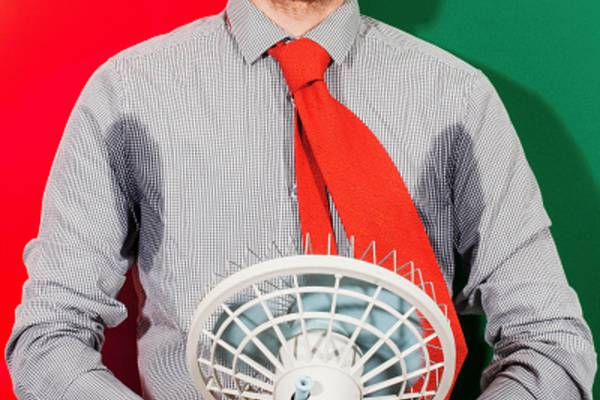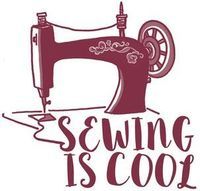
Does Viscose Fabric Make You Sweat? (Does It Show Sweat?)
Sweating is a problem for some people. This natural function of the body can be uncomfortable and a little off-putting to your romantic partner. The best way to keep these problems to a minimum is to wear the right fabrics that help your body breathe all day long.
Does Viscose fabric make you sweat? Viscose is a moisture absorbing fabric. That ability allows the fabric to absorb a lot of moisture. But that doesn't mean that the fabric won’t show sweat. For some people, those sweat stains on their Viscose fabric clothing are an embarrassment.
To learn more about Viscose and its capabilities just continue to read our article. It helps uncover the facts about viscose and its sweat prowess or lack thereof. Just a couple of minutes of your time is all that is needed to uncover the answer to this question.
Does Viscose Make You Sweat?

Certain styles of Viscose fabrics may make a contribution to your body sweating more than it should. It is supposed to be a breathable fabric but some people who wear this type of clothing have said that they sweat more with the Viscose clothing on.
Your experience may be different and find that your Viscose fabrics does what it is supposed to and keep you nice and cool. Ideally, Viscose is supposed to absorb moisture and lock it away from your body.
Even when it does that, it is not supposed to show any sweat stains. As one person put, their experience with Viscose exposed their flaws so brilliantly they felt they were shining a light on them for all to see.
Does Viscose Show Sweat Marks?

There seem to be dual results with this topic. Some people find that Viscose clothing hides those sweat stains quite well. They can wear their Viscose clothes all day long and look as if they just put them 5 minutes earlier.
Others have a different experience and would not wear Viscose clothing if their life depended on it. They feel that the cloth makes them sweat more and does nothing to keep the sweat stains away.
The quality of the garment made from Viscose will probably determine which experience you have to endure. Technically, Viscose is supposed to help keep you cool and avoid sweating. It is also supposed to stop sweat marks from showing up at the wrong times.
Does Viscose Absorb Water?

Yes, it does. Since it is made from wood pulp and cellulose it has the water or moisture absorbing characteristic built right into the fabric. That factor helps your body stay cooler throughout the day.
If you do abnormal amounts of sweating, for example waiting till you have to make your presentation, then you may have a terrible time with Viscose fabric. It is made to handle normal amounts of sweat but once it goes past that boundary you may see unsightly sweat stain marks or feel your body is wet and sticky.
Under normal conditions, you cannot do much better than wearing a Viscose blouse or dress. It absorbs the moisture and makes sure your body remains cool.
Does Viscose Make You Smell?

The good news here is that Viscose and most fabrics do not make you smell. That foul odor your body is expelling comes from bacteria, not the fabric you are wearing. Some fabrics encourage bacteria growth and make your situation worse.
Viscose is one of the fabrics that works to stop that bacteria growth. That means that even if you sweat you should not smell or not smell as bad as you could when you wear a viscose made shirt, blouse, or dress.
Wear a Viscose undershirt next to your skin is one of the smarter ways to dress. That item helps your body look and smell like you want it to. A couple of the fabrics that do not fight that bacteria are polyester and wool.
Facts About Viscose
If this is your first encounter with Viscose then it [pays to learn as much about the fabric as possible. Those facts will help you decide if you want to use it or if you want to pass on using it in favor of another fabric.
- 1. Viscose is a type of rayon
When it was first made in the 19th century, Viscose was called artificial silk because of its silk-like qualities. The word rayon did not come into use till 1924
- 2. Viscose has dual personalities
Because of its manufacturing style, this fabric is neither natural nor synthetic. That construction keeps its cost low.
- 3. Viscose has a long manufacturing process
While the cellulose used in making this fabric, the wood pulp is not enough to make it a very good clothing material. That extra man-made processing is what keeps Viscose from being natural.
- 4. This fabric can be eco friendly
That attitude is the result of the manufacturing process. If the material is made through the Lyocell process then it produces little waste making it better for the environment
- 5. You can print on Viscose
There are a few steps in the process but this fabric is print-friendly and works with you.
Pros and Cons of Viscose
Pros:
- Versatile – it blends very well with other fibers
- Breathable
- Drapes well
- Excellent color retention
- Highly absorbent
- Very smooth
- Does not trap body heat
- Relatively light
- Strong and robust
- Soft and comfortable
- Inexpensive
- No static build-up
Cons:
- It can shrink when washed
- Can wrinkle easily
- Deteriorates with exposure to light
- Susceptible to mildew
- Fibers can weaken when wet
Some Final Words
Chances are that if you are wearing a clothing item made from this fabric, you should be cool all day long. There should be no worry about sweating or sweat stains unless you do something that has you sweating abnormally.
Viscose is a breathable fabric designed to help you and your body keep you cool.

